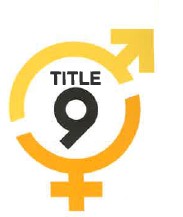The United States Department of Education’s Office for Civil Rights mandated a new Title IX Sexual Harassment Policy and Grievance Procedure to be implemented nationwide on Aug. 14. Southern Miss’s Title IX office assures that even though policies have changed, the office is still a viable resource to connect the community to the help they need.
USM’s Title IX Head Coordinator Rebecca Malley, Ph.D., and Deputy Coordinator Cristin Reynolds, believe that the new changes include both positive and negative additions to sexual harassment investigations and hearings.
The new policy first defines several terms regarding sexual harassment that previously had been left to interpretation, including stalking, domestic violence and sexual assault.
The new definition for sexual harassment is “unwelcome conduct determined by a reasonable person to be so objectively offensive, pervasive, [and] severe that it effectively denies a person equal access to the recipient’s educational program or activity”. Previously, to file a complaint on the basis of sexual harassment, one only had to meet either “offensive, pervasive or severe unwelcome conduct”, but now a claim must meet all three.
Additionally, the jurisdictions for which the Title IX office can investigate claims have changed. Now, a Title IX sexual harassment complaint must only involve persons of the campus community (including faculty, students and vendors), take place on property owned or overseen by Southern Miss and have occurred in the U.S.
However, Malley says this should not stop someone from filing a complaint. The Title IX office provides supportive measures for emotional, mental and educational progress on sexual harassment and assault. The jurisdictions and requirements to file a complaint do not have to be met to seek supportive measures. Title IX also asks to be made aware of any misconduct even if someone does not want to file a claim so that strides can be taken to prevent further harm.
“We understand that this is not an easy process to deal with, and what is important for us is making sure we have a safe campus community, but also to help people be successful during their time here, which is why we have those supportive measures,” Reynolds added.
Sexual assault investigations can now be lowered to an informal process if the complainant wishes. If the claim continues as a formal investigation, there are now more review periods to ensure both parties have provided all the information as best as they can and review, accept or challenge any opposing evidence brought forward.
“This is a positive in that it does give the opportunity to more frequently add input, but it is also a challenge because it adds twenty days to the process before the hearing,” said Malley.
A formal sexual harassment case now requires both the complainant and respondent to have a trained advisor to speak on their behalf during the cross-examination of a hearing. The Title IX office will appoint a trained advisor to each party. Southern Miss is not required to provide any party with a lawyer, but a lawyer can be used as a party’s advisor.
If a complaint does not meet the sexual harassment definitions or jurisdictions for Title IX, the complainant can still meet with the Dean of Students to handle the issue under a code of misconduct.
“We’re not looking for guilt or innocence[.] The process itself is looking for a violation of USM’s policy,” Reynolds said.
Adia Reed, a junior criminal justice major, still trusts the Title IX Department Team.
“I absolutely love Dr. Malley[.] She was so comforting throughout the process and consistently made all efforts possible for me to get justice,” said Reed.
If you would like to file a complaint for review, please visit their official online complaint page or visit www.usm.edu/title-ix.


























